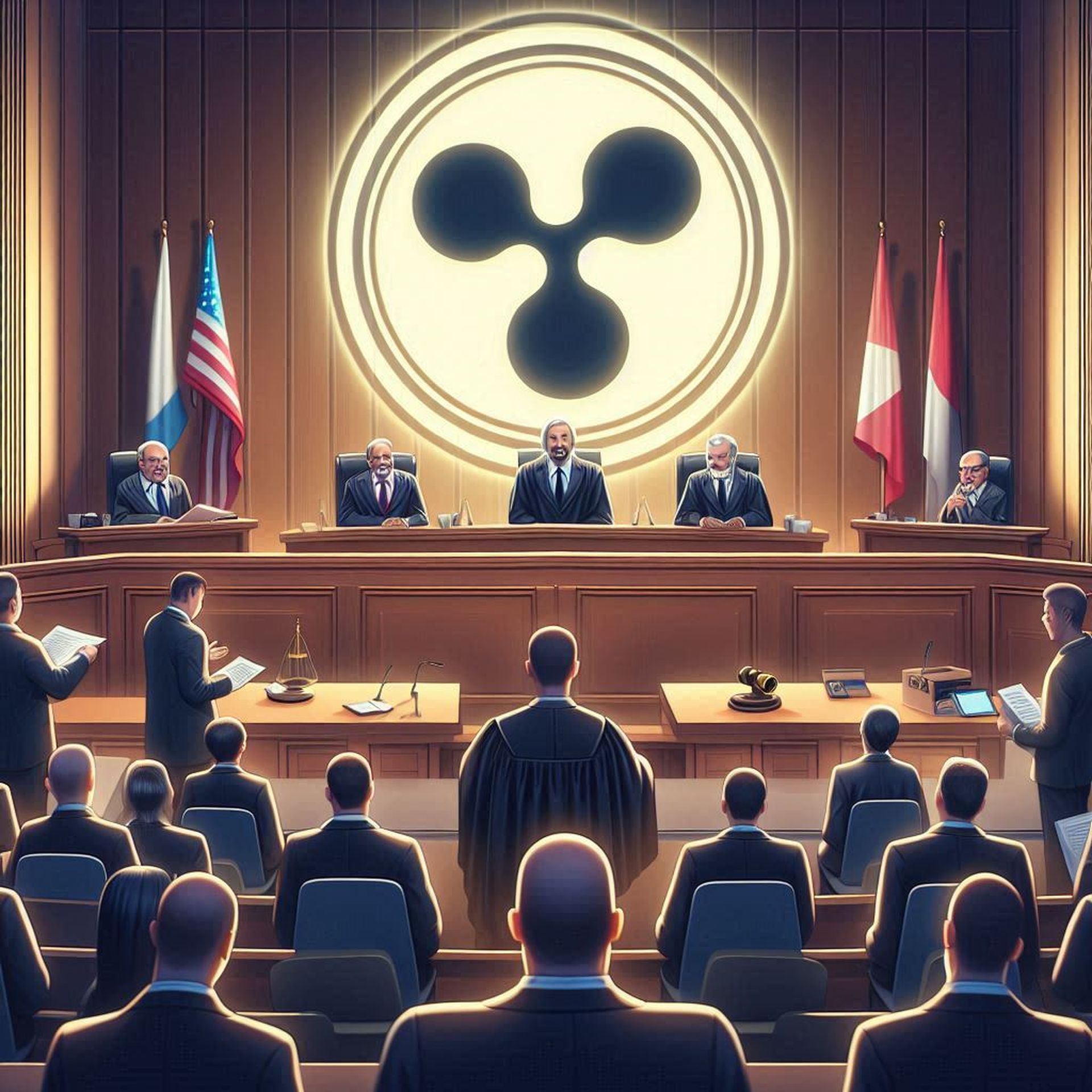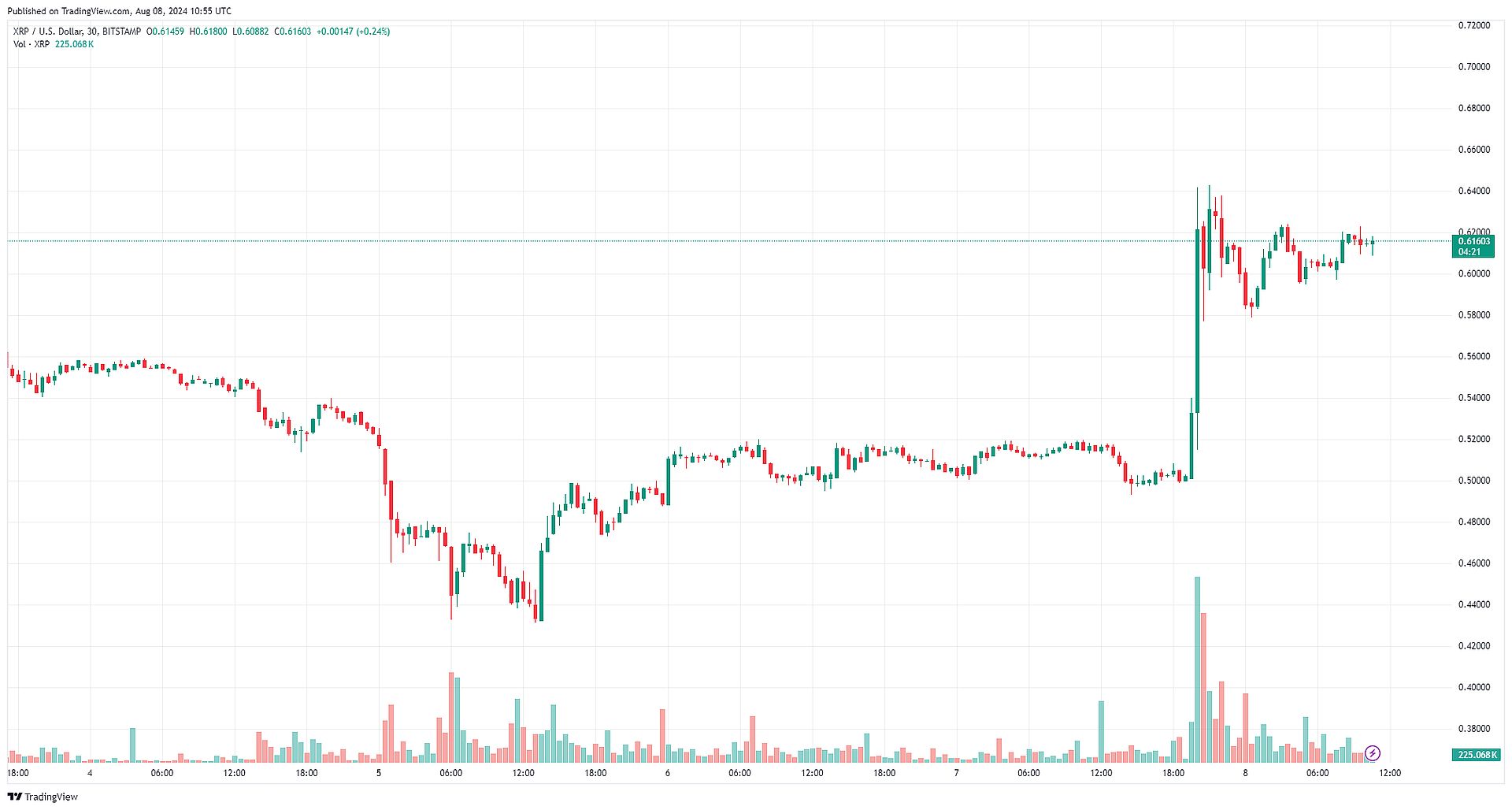Few legal battles have been as closely watched as the XRP Ripple lawsuit. This conflict began in December 2020 and has been a major topic for anyone interested in digital currencies. The SEC accused Ripple of selling XRP, its cryptocurrency, as an unregistered security, while Ripple argued that XRP should be treated like Bitcoin and Ethereum, not as a security.
Now that the court has made its decision, Ripple was fined $125 million—far less than the SEC’s original $2 billion demand but more than Ripple’s proposed $10 million. Ripple is also under an injunction, which means they must avoid future violations of securities laws. While this ruling appears to close the case, the SEC will likely appeal, potentially prolonging the legal battle.
Now, let’s take a closer look at the events and their implications. From the original allegations and Ripple’s defense to the final ruling and its impact on the market, this case is likely to shape how other cryptocurrencies are regulated and traded in the future.
SEC’s claims in the XRP Ripple lawsuit
The lawsuit between Ripple Labs Inc., and the U.S. Securities and Exchange Commission (SEC) has been a pivotal event in the cryptocurrency world. Initiated in December 2020, the SEC alleged that Ripple and its executives, Brad Garlinghouse and Chris Larsen, had raised $1.3 billion through an unregistered securities offering by selling XRP. Ripple countered that XRP is a digital currency, not a security, and should be treated like Bitcoin and Ethereum, which the SEC had previously stated were not securities.

The SEC argued that XRP should be classified as a security because it was used to finance Ripple’s operations and investors were led to expect profits from Ripple’s efforts to develop and maintain a use case for the cryptocurrency.
The SEC maintained that Ripple’s sales of XRP constituted an unregistered securities offering.
Ripple’s defense
Ripple contended that XRP is a digital currency used for international payments and as a bridge currency in financial transactions.
Ripple argued that XRP is decentralized and that the company did not have sufficient control over XRP to classify it as a security.
Ripple also claimed that the SEC did not provide fair notice that XRP would be considered a security, emphasizing the lack of clear regulatory guidance.
Court rulings
In July 2021, Judge Analisa Torres of the Southern District of New York ruled that some of Ripple’s XRP sales, particularly those conducted through a blind bid process (programmatic sales), did not constitute securities transactions. This decision was based on the fact that these sales were conducted in a manner where investors did not know if they were buying from Ripple or another seller.
However, Judge Torres also ruled that direct sales of XRP to institutional investors did violate securities laws. These transactions were deemed to be securities offerings because they were made with the expectation of profit derived from Ripple’s efforts.
Final judgment
In August 2024, the court imposed a $125 million fine on Ripple. This amount was significantly lower than the SEC’s proposed $2 billion penalty but higher than Ripple’s proposed $10 million.

The court also issued an injunction preventing Ripple from further violations of securities laws, emphasizing the need for Ripple to adhere to regulatory requirements in its future operations.
Despite the settlement, the SEC is expected to appeal the ruling, potentially extending the legal proceedings.
The market loves it: XRP to the moon?
Following the announcement of the settlement, XRP surged 17%, with its price rising from 50 cents to 65 cents. This was a clear indication of market optimism regarding the case resolution.

Trading volumes for XRP nearly tripled, with significant activity observed in the South Korean markets.
While XRP experienced significant gains, Bitcoin’s price remained unchanged in the 24 hours following the ruling, reflecting a cautious market sentiment amid ongoing regulatory scrutiny in the crypto space.
The Ripple-SEC saga reaches its end
To sum up, the long-running XRP Ripple lawsuit has finally come to a close, marking a significant moment in the world of cryptocurrencies. Since December 2020, Ripple and the SEC have been at odds over whether XRP should be considered a security. The SEC claimed that Ripple raised $1.3 billion by selling XRP as an unregistered security, while Ripple argued that XRP is a digital currency, not a security, similar to Bitcoin and Ethereum.
The court’s final decision brought mixed results. Ripple was ordered to pay a $125 million fine—much less than the SEC’s initial demand of $2 billion but more than Ripple’s suggested $10 million. Additionally, Ripple is now under an injunction, meaning they must be careful not to violate securities laws in the future. Even though this ruling seems to wrap up the case, the SEC is expected to appeal, which could drag the legal process out further.
Despite the legal challenges, the market reacted positively to the XRP Ripple lawsuit news. XRP’s price jumped 17%, from 50 cents to 65 cents, showing renewed investor confidence. Trading volumes also surged, especially in South Korean markets. Meanwhile, Bitcoin’s price remained stable, reflecting the cautious mood in the broader crypto market.
The XRP Ripple lawsuit will likely influence how other crypto projects manage their token sales and interact with regulators. As the dust settles, the crypto industry will be paying close attention to the ripple effects of this decision.
Featured image credit: Eray Eliaçık/Bing





